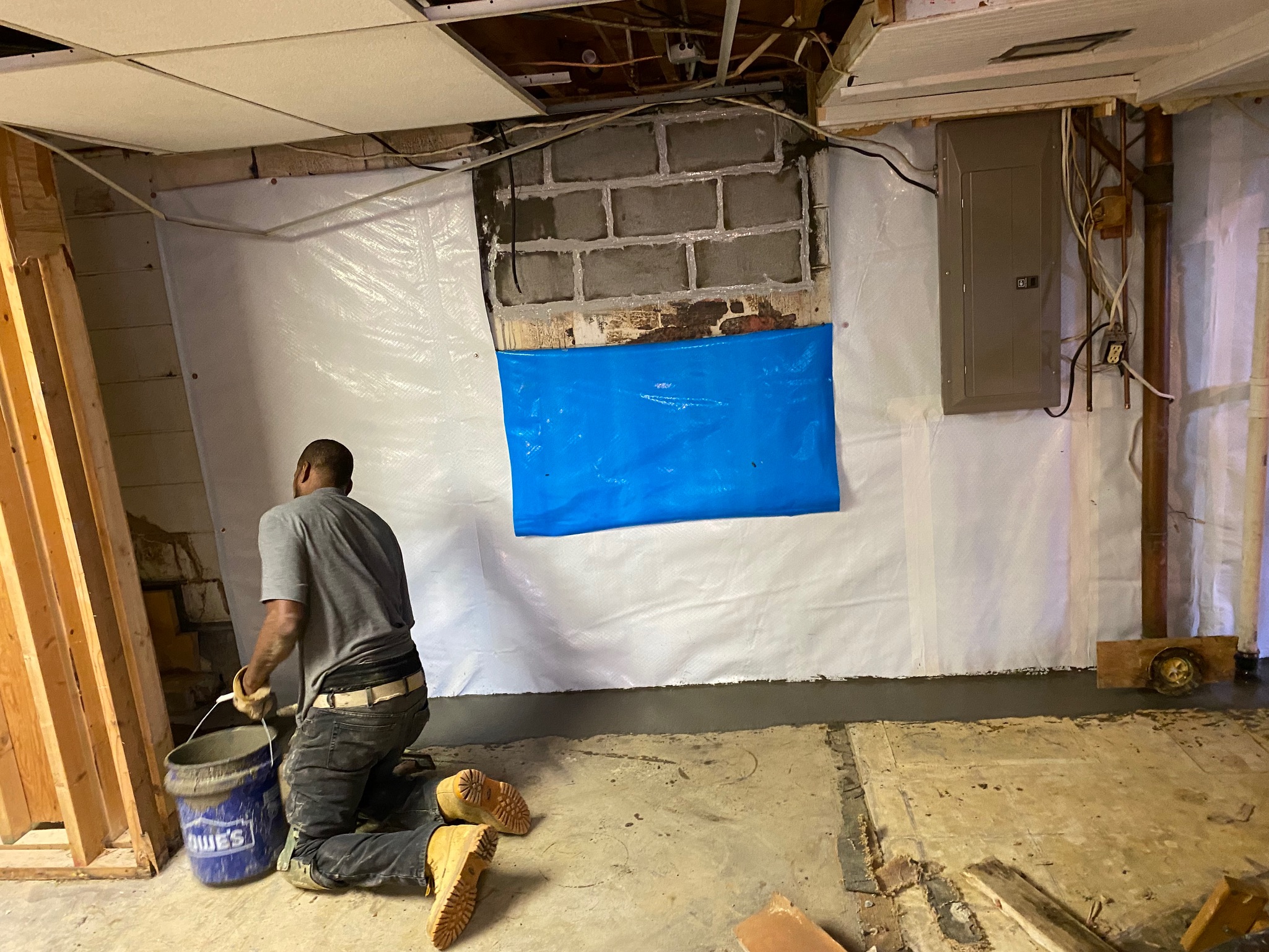
In any real estate transaction, one of the most critical yet often overlooked elements of the home is the foundation. It literally supports everything above it. Whether you’re buying, selling, or representing a client, understanding the condition of a home’s foundation can mean the difference between a smooth closing and a costly mistake.
A small crack might just be cosmetic, or it could be the first sign of serious structural movement. That’s why foundation inspections are essential during real estate transactions. They help uncover hidden problems, prevent disputes, and protect both buyer and seller from surprise expenses.
In this article, we’ll explain why foundation inspections matter, when they should be performed, what they typically include, and how to proceed if issues are found during a home sale.
🔑 Key Takeaways
- Foundation inspections are crucial for detecting hidden structural issues before a sale.
- Buyers benefit by identifying risks early; sellers can avoid price reductions or legal problems.
- Inspections reveal cracks, settlement, water damage, and more.
- A professional evaluation gives clarity beyond a basic home inspection.
- If problems are found, expert repairs and documentation can preserve the transaction.
Why Foundation Inspections Matter in Home Sales
For Buyers
Purchasing a home with foundation issues can lead to:
- Unexpected repair costs
- Difficulty obtaining financing
- Decreased property value
- Insurance limitations
A foundation inspection gives buyers peace of mind, helps them negotiate repairs or price adjustments, and ensures the home is structurally sound.
For Sellers
Selling a home with foundation issues — even unknowingly — can result in:
- Buyer hesitation or lost offers
- Appraisal problems
- Price reductions
- Delays or failed closings
- Potential lawsuits if problems are discovered after the sale
Being proactive with an inspection shows transparency, builds trust, and helps control the narrative around any issues that arise.
What’s Included in a Foundation Inspection?
A professional foundation inspection goes beyond what a general home inspector can evaluate. Foundation specialists focus specifically on structural integrity and soil conditions.
Here’s what’s typically included:
Interior Evaluation
- Cracks in walls, ceilings, floors
- Door and window alignment
- Sloping or uneven floors
- Moisture or mold presence
- Signs of bowing basement walls
Exterior Evaluation
- Visible cracks in the foundation
- Gaps between siding or masonry and the foundation
- Chimney tilt
- Drainage and grading issues
- Soil conditions around the home
Structural Assessment
- Type and condition of foundation (slab, crawl space, basement)
- Movement patterns (settlement, heaving, lateral pressure)
- Load distribution and framing impact
- Location and severity of any movement-related damage
Moisture and Drainage Analysis
- Gutter and downspout placement
- Water pooling or erosion around the home
- Signs of hydrostatic pressure
- Basement or crawlspace humidity levels
When Should a Foundation Inspection Be Performed?
For Buyers:
- During the inspection period (after offer acceptance)
- If cracks, floor sloping, or moisture are present
- Before committing to major renovations
For Sellers:
- Before listing, to catch and fix issues early
- If you suspect or have previously addressed foundation repairs
- To include documentation in your disclosure and marketing
For Real Estate Agents:
- Recommend a foundation inspection when:
- The home is older
- There’s visible damage or prior repairs
- The property is in a high-risk soil zone (e.g., expansive clay areas in Virginia)
How Foundation Inspections Differ from Home Inspections
| Home Inspection | Foundation Inspection |
|---|---|
| General overview of the home’s systems | Focused structural and soil assessment |
| May note cracks but not diagnose them | Analyzes cause, severity, and repair needs |
| Covers roofing, plumbing, HVAC, etc. | Examines soil, drainage, and support structures |
| Often required by lenders | Optional but highly recommended in risk-prone areas |
If a home inspector flags potential foundation concerns, they will refer you to a specialist like Seal-Tite for a detailed evaluation.
Common Foundation Issues Found During Transactions
- Vertical, horizontal, or stair-step wall cracks
- Sloping or uneven floors
- Bowing or bulging basement walls
- Cracks in exterior brickwork
- Water intrusion or mold in the basement
- Evidence of prior repairs or incomplete fixes
- Settling or movement around additions or extensions
Each of these can impact a sale — but not all require extensive repair. A professional can help determine the true scope of the issue.
What Happens If Foundation Problems Are Found?
For Buyers:
- You can request a price reduction, seller credit, or have the seller perform the repair before closing.
- Use the inspection report to renegotiate the offer if needed.
- Walk away if the issue is serious and unrepaired — depending on the inspection contingency.
For Sellers:
- Get a second opinion to confirm the scope of the problem.
- Decide whether to fix the issue or adjust the price.
- Provide documentation of any past repairs or warranties (especially from reputable companies like Seal-Tite).
Being proactive helps maintain buyer confidence and prevents last-minute surprises.
How Repairs Affect Real Estate Transactions
✅ Well-Documented Repairs Help the Sale
If you’ve had professional work done:
- Provide copies of inspection reports and warranties.
- Show proof that the repair was completed by a licensed contractor.
- Be transparent in your seller disclosure.
Buyers often feel more confident in a home with a professional repair and transferable warranty than one with an unknown history.
❌ Unaddressed Damage Delays or Kills Deals
Foundation issues discovered late in the process can:
- Trigger lender concerns
- Reduce appraised value
- Scare away buyers
- Lead to last-minute cancellations
That’s why timing is everything.
Real-Life Example: Saving a Sale With Expert Help
A couple in Blacksburg, VA, put their home on the market. During the buyer’s inspection, stair-step cracks were found on the basement wall, and the buyer’s agent requested a specialist evaluation.
Seal-Tite Basement Waterproofing performed a full inspection and discovered:
- Minor bowing of the basement wall
- Cracks caused by hydrostatic pressure from poor grading
- No active structural failure, but early signs of movement
Solution provided:
- Installed carbon fiber straps to reinforce the wall
- Corrected exterior drainage and slope
- Provided a transferable warranty for future buyers
The sale moved forward on time, and the seller didn’t have to negotiate a large price reduction. The buyers were reassured by the thorough documentation and professional repair.
FAQs: Foundation Inspections in Real Estate
Is a foundation inspection required when selling a home?
Not always — but highly recommended if you suspect movement, see cracks, or want to prevent surprises during the buyer’s inspection.
Can I sell a home with foundation issues?
Yes — but you’ll likely need to disclose the issue, provide an estimate or repair, and adjust your asking price accordingly.
Will a bad foundation fail the home appraisal?
Not necessarily, but it can lower the appraised value or prompt lenders to require repairs before financing approval.
Should I still get an inspection if the home looks fine?
Yes — especially if the home is older, on expansive soil, or shows even small signs of distress. Catching issues early prevents larger costs.
How much does a foundation inspection cost?
Many companies, including Seal-Tite, offer free or low-cost evaluations, especially if you’re already seeing symptoms.
Conclusion: A Solid Foundation Starts with a Smart Transaction
Whether you’re buying or selling, a foundation inspection is one of the most important steps in protecting your investment. It brings clarity, builds trust, and helps avoid costly surprises during closing.
Don’t assume cracks are “just cosmetic” or that a home is solid just because it’s standing. If you’re entering a real estate transaction and want to ensure your foundation is sound, call Seal-Tite Basement Waterproofing. Our expert inspectors will provide honest answers, clear documentation, and effective solutions — so your next move is built on solid ground.

Seal-tite Basement Waterproofing Co. is a full service basement environment contractor. We carry an A+ Better Business Bureau rating. We repaired over 40,000 homes and structures in Virginia, West Virginia, Tennessee, and North Carolina. We are fully insured and licensed. We have worked in all types of locations, including residential and commercial locations, government agencies, colleges, hospitals, churches, and condo associations.
Seal-tite® offers a lifetime transferable warranty. We carry a Class A Contractor’s License and we are fully insured. Our satisfied customers range from government agencies to businesses, hospitals, colleges, churches, and thousands of homeowners. Your home is probably the single largest investment you will make in your lifetime. Don’t wait, call Seal-tite® to help make your home dry, safe and livable.

